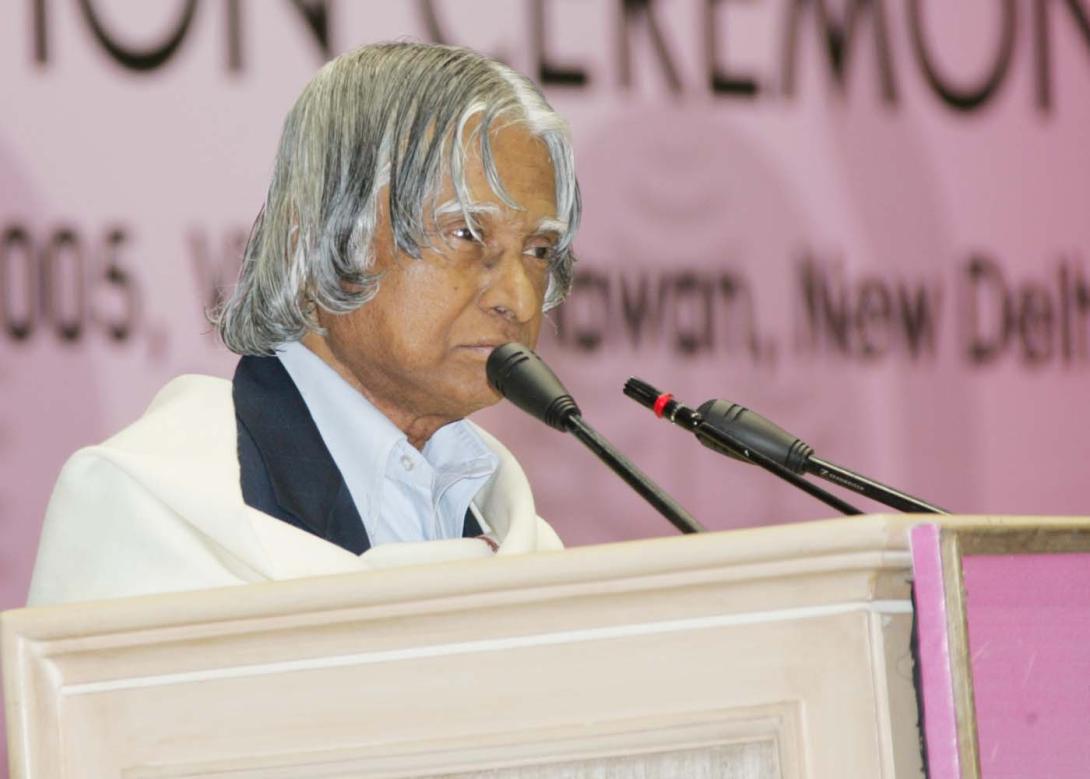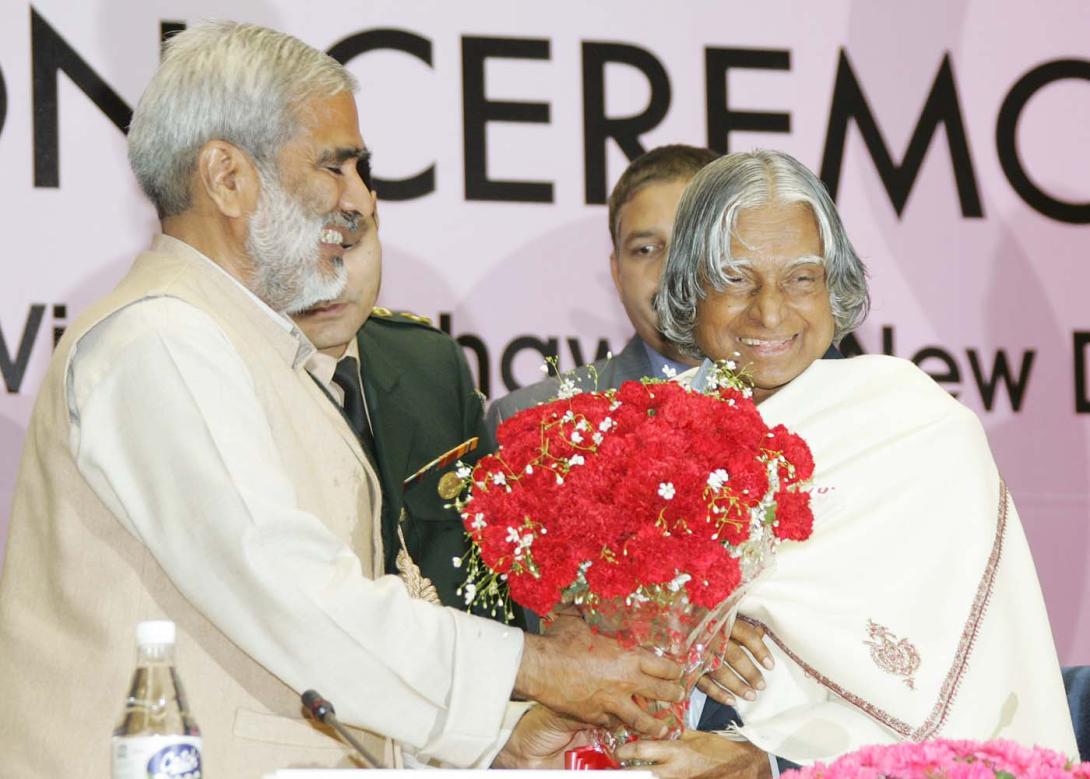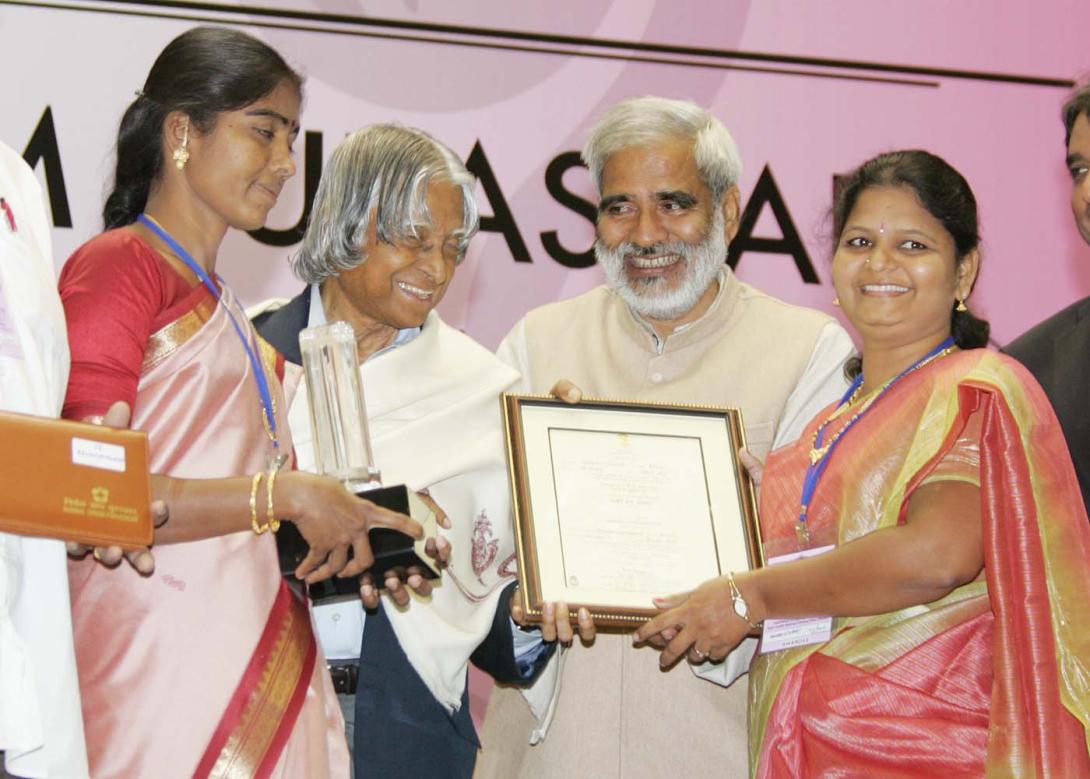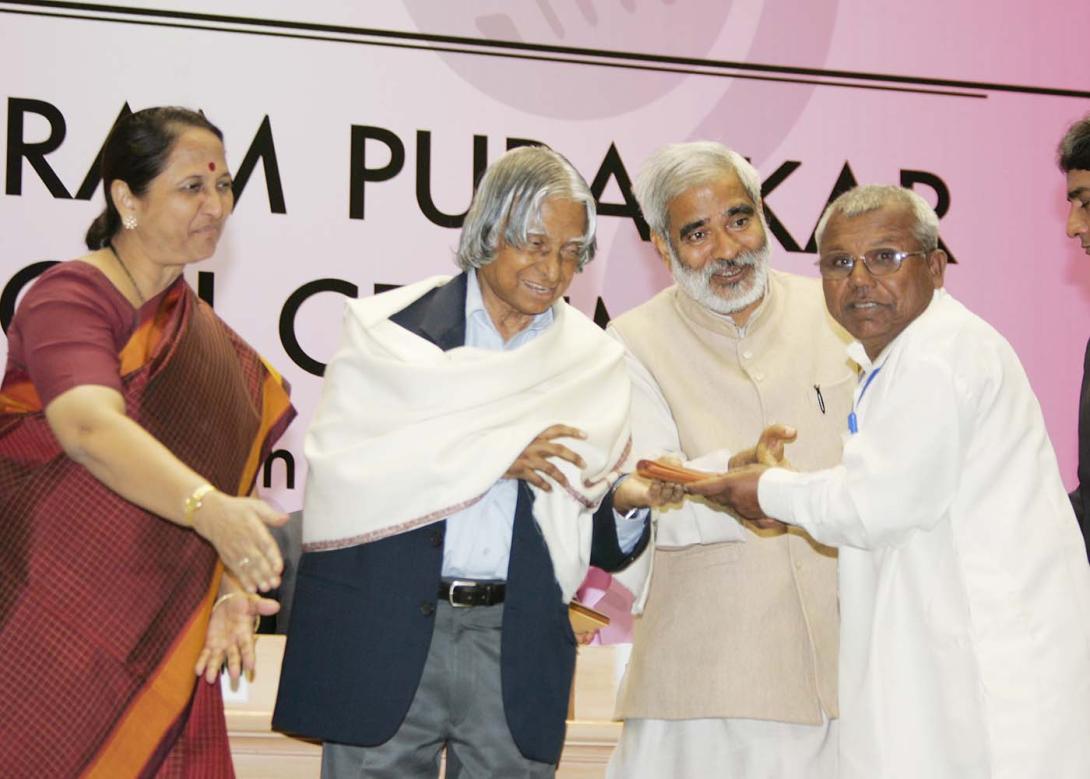Presentation Of Nirmal Gram Puraskar Awards
New Delhi : 24-02-2005
Sanitation is a Noble & Important Mission for the Nation
I am delighted to participate in the Nirmal Gram Puraskar function organized by the Department of Drinking Water Supply, Ministry of Rural Development as a part of their effort to achieve total sanitation coverage in our rural areas. I congratulate the award winners and greet the organizers, Non-Government Organisations, scientists, engineers and other distinguished participants. I suggest that the selection process for such awards should be apolitical and based on proven performance. As per the data available, I find the scheme is now covering only in four hundred and fifty two districts of the total six hundred and two districts. It is essential that we make the scheme applicable in all the districts of the country. While I am in the midst of this gathering, I would like to share some of the experiences related to sanitation, I had during my visit to various parts of the country.
Keerapalayam Experience
In August 2004, I had visited Keerapalayam Panchayat in Cuddalore district, Tamil Nadu. When I was discussing with the Panchayat Board office-bearers, I found that every one of the thousand one hundred and twenty five dwelling units in the Panchayats had sanitary facilities. Also it was interesting to find that the women in the village had acquired masonary and plumbing skills and they had been responsible for constructing the household toilets. They not only constructed toilets for the houses in their Panchayats but also went to neighbouring villages and provided this facility on an entrepreneurial basis. This method has provided employment opportunities to the women and also enabled the Panchayat area clean, tidy and free from diseases arising out of poor sanitary conditions.
Punjab Experience
I would like to refer to one another good model which, I came across during my visit to Kharodi village which is very near to Shaheed Bhagat Singh?s village in Punjab. A NRI, Shri H.G.S. Gill from Canada with the help of State Government, has laid the underground sewerage system with stabilization tank and activated sludge system. With the availability of this under ground sewerage system the whole village has been able to construct household toilets and toilets in schools, hospitals and other public places. These examples can be propagated by the Ministry of Rural Development to NGOs and social organisations working in different parts of the country.
Environmental Sanitation Institute
During the first week January, 2005 I visited the Environmental Sanitation Institute at Ahmedabad which is the official training institute of the Total Sanitation Campaign organized by the Department of Drinking Water Supply. I found that they had technology for constructing a single seat toilet at a cost of just Rs. 150. This institute has been promoting the cause of total sanitation in Gujarat through their dedicated work force. In addition to providing sanitary equipment they are also working in the area of making smokeless Chullahs at just Rs. 60. Use of these Chullahs ensure that the rural women are free from breathing diseases.
Task Ahead
As per 2001 Census, there are nearly 200 million dwelling units in the country of which nearly 140 million are in the rural areas. The sanitation facility is available only in nearly 40 million dwelling units. Hence, there is an urgent need to provide sanitation facilities to over one hundred million dwelling units in rural areas. The lack of sanitation facilities is the greatest health hazard for our rural population. Waterborne diseases, hepatitis, leprosy, tuberculosis etc. can all be attributed to non-availability of proper sanitation facilities. Hence to improve the health condition of our rural population it is essential to hasten up the process of providing sanitation facilities to all dwelling units, schools, hospitals and community halls in the rural areas. In addition, there should also be a drive to convert the waste into wealth. The sanitation programme should be taken up as a joint task between the Ministry of Rural Development and the Ministry of Health and Family Welfare.
Integrated Zero Waste Management
Recently, I came across a total sanitation programme organized at Gandhi Nagar town Panchayat in Vellore district. Here the Panchayat authorities in collaboration with non-government organisation has been able to segregate the waste into organic and inorganic items. They have created men self help groups and women self help groups for managing the waste in the Panchayat. These groups have established roadside dustbins which are being cleared regularly. They also have special services for hotels and marriage halls. The drainage system in the village is being cleared thrice in a week. The fault reporting system is so efficient that sanitation faults in the village are attended to and rectified within the same day. A village having two thousand four hundred families generate a garbage of over 48 tonnes per year. This garbage is converted into manure and recyclable waste generating over Rupees three lakhs in revenue. All the two thousand four hundred families in the village are able to have a clean green village just by paying around ten rupees per month per family. The scheme provides employment to around thirty six members who are paid employees of the Panchayat. Part of the funds required for the payment of these employees are generated by the sale of manure and recyclable waste. This appears to be a self generating system and is economical. Many of the panchayats in the country may like to follow such examples for keeping the panchayats clean, tidy and disease free. The Department of Drinking Water Supply should study the various experiences I have narrated, and select the right type of model for application in different regions of the country.
Electricity Generation from Municipal Waste
A serious problem has arisen both in rural and urban areas due to the accumulation of municipal solid waste. Efficient and environmentally clean disposal of garbage has always been a major technological challenge. While being a threat to the environment, mounting garbage is also a rich source of energy. The potential for converting this waste into useable energy, which will eliminate a major source of pollution, was realized by one of our innovative organizations- Technology Information Forecasting and Assessment Council of DST which helped in developing a completely indigenous solution for the processing of waste into a source of fuel. This fuel could, in turn, be used for generation of electricity through mini plants. Two entrepreneurs in Andhra Pradesh adopted the technology with refinement and established two independent plants in Hyderabad and Vijayawada generating over 6 megawatts of electricity each, which is being supplied to the State Grid. We acknowledge the combined effort of our scientists, technologists and the industries in making technology socially useful, environmentally appropriate and economically significant. India needs thousands of mini power plants both in rural and urban areas using municipal waste. This can be a mission of Ministry of Rural Development who can create mini power plants in district and block head quarters using the municipal waste of the cluster of villages.
Clean habitat is my goal
The status of environmental cleanliness is one of the indicators of development of a nation. As a nation, we have to keep our environment clean and tidy and it has to start from the home. This is essential for better health conditions of all the citizens and also for presenting a wholesome and aesthetic atmosphere for us. It is essential that we keep all our places of worship and rivers clean and tidy to preserve their innate divinity. The devotees can make the provision of service to keep the place tidy as part of their worship. Members of the Panchayats can promote a clean habitat movement in their home and surroundings and participate in imparting the awareness amongst the rural and urban population leading to a clean nation. This action itself will lead to healthy environment and environment for better performance and productivity in various types of tasks that people take up. I will make my village the cleanest village should be the passion of each and every member of the Panchayat Board. This should be spread among the school children, teachers and workers of social organisations. Here, I would like to quote Sister Nivedita who says ?The man who would not stir a finger to help his village, is not the man who will bleed and die in the country?s cause. By civic duty we are tested for national responsibility. By the widening of our smaller accomplishment, we immeasurably extend the possibilities of the larger.?
Conclusion
I have the following five suggestion for the success of achieving the total sanitation campaign goals of the Ministry of Rural Development.
a. We must have a mission to provide sanitary facilities to all dwelling units in rural areas by the year 2010. Since the facility is still to be provided for over hundred million dwelling units, we should target provisioning of sanitary facilities to at least twenty million dwelling units per year. While providing this facility we should ensure provision of adequate water supply.
b. The mission must be executed through village Panchayats in conjunction with societal establishments mobilized for this purpose in each of the village. Preferably it will be useful to empower the women in all the villages to execute this programme.
c. The Ministry of Rural Development can organize state-wise training programme to train the members of sanitation mission in construction and maintenance of modern sanitary facilities. The Environmental Sanitation Institute, Ahmedabad and similar institutions can become the nodal agency for imparting such trainings in district centres. Imparting of the training can become a public-private partnership programme. Programmes aimed at employment can be tuned to give such workers good income as well.
d. The sanitation mission has to make the entire village community dynamic with the mission and will also provide employment opportunity for certain number of people. e. Educate the children right from the age of three to make use of sanitary facilities. This should become part of the total sanitation campaign. Every family and teachers of Montessori school should take up this as a family task.
Once again my congratulations to all the award winners, Ministry of Rural Development and best wishes to all of you for success in total sanitation campaign leading to a healthy rural India.
May God bless you.




